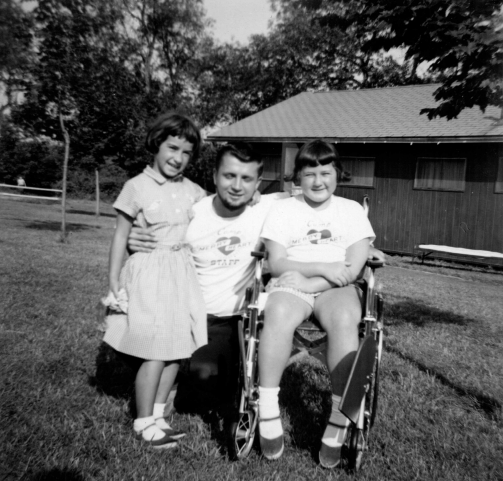In a small town in New Jersey, there is a place called Camp Merry Heart. It’s a summer camp, where kids come to learn how to bolster their self-esteem and independence while having fun swimming, fishing, boating and more.
But the campers here are different. They are children with disabilities.
It’s also the place where, over 60 years ago, George Mischio — my father — worked as a counselor and eventually camp director. In many ways, his time at Camp Merry Heart formed the foundation for what would be a long and impactful career in special education.
It also had an impact on my own professional journey. And while his career was in academia and mine was business, the lessons I’ve learned from him were more about life than livelihood.
A young man learns of a special place
My father grew up in the late 1950s in a small town in New Jersey called Montvale. He lived there with his parents, George and Rose, and a sister named Marilyn. My grandfather worked as a mailman for years and eventually co-owned a gas and service station, while my grandmother was an at-home mom.
When my dad was fifteen, he worked at a summer camp run by a man named Herb Summers. One day, he pulled my dad aside and made him an intriguing offer.
Summers told my dad that he was going to run a new camp — one that served kids with cognitive and physical disabilities — and he wanted my dad to work there as a counselor.
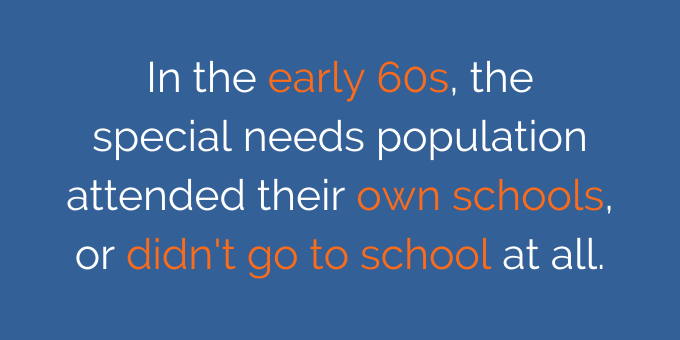
This was the early 60s, and the special needs population was typically isolated from the mainstream kids. They attended their own schools or didn’t even go to school at all.
Opportunities typically available for most kids, like summer camp, simply didn’t exist for them.
Not every high schooler’s summer job
Working as a counselor for kids with learning disabilities isn’t at the top of most high schoolers summer job list.
My dad was no different. Like many people, my father was uneasy about interacting with the special needs population. He also had zero experience working with kids like this. He expressed his reservations to Summers. To which the camp director replied, “Neither do I!”
Summers won over my dad with his entrepreneurial spirit, and he agreed to work at Camp Merry Heart.
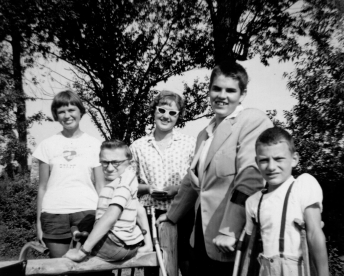
Campers at Camp Merry Heart
As they began planning how the camp would run, they decided it should function like a typical summer camp, with outdoor activities, arts and crafts, and plenty of campfires. “We decided to just modify the activities to the kids’ disabilities,” my dad told me when I interviewed him recently about his time at Camp Merry Heart.
The camp opened, and as my dad worked with the campers, he started to see beyond their disabilities. He realized they were just regular kids, and developed a strong bond with them.
“The campers loved us, and we loved them,” he said.
That’s when something happened that would change the trajectory of his career and his life.
Tears and a revelation
At the end of the camp’s three weeks, it was time for the kids to go home. As the parents arrived, the campers started crying.
My father realized that this was the first time they had actually left their isolated lives and been with other kids. The camp had given them something they had never experienced before, and they loved it. My father thought, “This is magic.”
After the kids had left, it became obvious to my father how much he enjoyed his job at the camp. He had considered working at his father’s gas station, but he wasn’t mechanically inclined and didn’t like the work. He could see that the kids at Camp Merry Heart were his true calling.
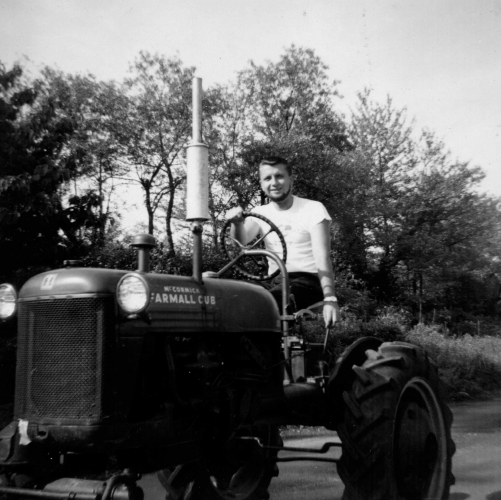
George Mischio as Camp Director.
That experience led to his next move. After graduating from high school, my dad decided to attend Newark State Teachers College, where he would study general education and “mental retardation,” as it was referred to in those days. And every summer, for the next ten years, he worked at Camp Merry Heart.
Eventually, my dad became the Camp Director, and he was joined by his soon-to-be wife and my mom, Barbara, whom he met in college. My mom was a great fit, as she was receiving training in general education and speech and language therapy.
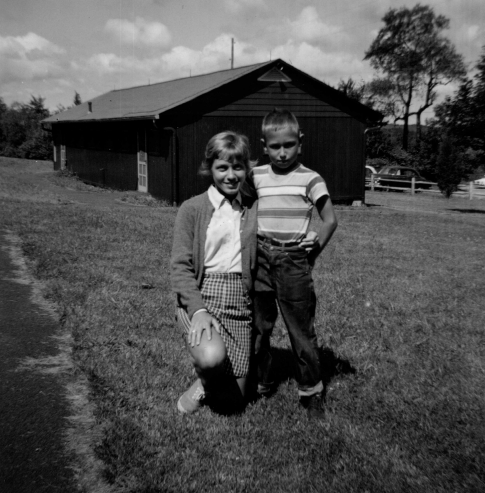
My mother, Barbara, worked at Camp Merry Heart too.
Making a cause into a career
After graduating Newark State, my dad went to the University of Illinois to pursue a Masters degree in the burgeoning field of special education. It was led by a man named Samuel Kirk, who today is referred to as “The Father of Special Education.”
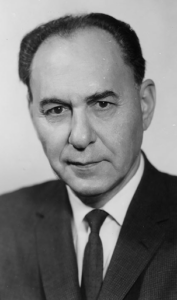
Studying under Samuel Kirk – “The Father of Special Education”
Special education is widely-known today, but back in the 1960s, it didn’t exist in schools. But Kirk had pushed the field into mainstream education. He was renowned for his work in diagnosis, training and social policy for children with disabilities, and was named Director of Bureau of the Handicapped by John F. Kennedy, who had a sister with a mental disability.
(My dad was actually in Kirk’s office and overheard the phone conversation when President Kennedy offered the post to the influential professor.)
My father received his masters and eventually his PhD, and became one of the first generation of special education teachers. He and my mom moved to Wisconsin, where they both worked in the College of Education at the University of Wisconsin-Whitewater.
But he wasn’t done with Camp Merry Heart, or rather, it wasn’t done with him.
The Camp Merry Heart model
During his college days, my father had noticed how little experience his fellow classmates had with the special needs population. He knew his hands-on work at the Camp Merry Heart was critical in his own personal development. He wanted to create a similar experience for his graduate students at UW-Whitewater.
My father reserved some classroom space and turned it into a Learning Disabilities Center. Kids with disabilities would come to it and were taught by my dad’s graduate students. The grad students experimented with new teaching methods and products on the kids, and then shared their experience with their fellow teachers.
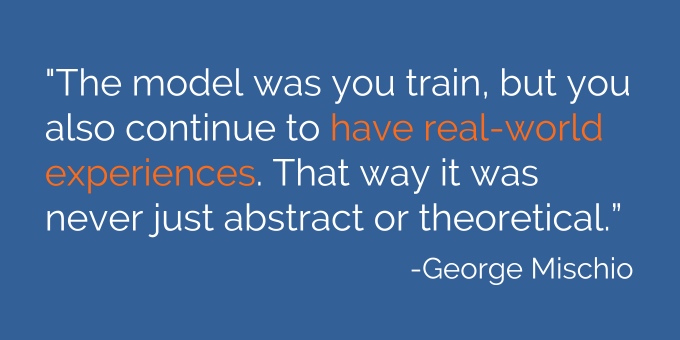
My dad’s experience at Camp Merry Heart had come full circle, and it became the hallmark of his career.
Life lessons from dad
When I look back at my dad’s journey and my own career, I see that a lot of decisions I’ve made were influenced by how he lived he lived his life (and believe me, these traits are embodied by my mom as well):
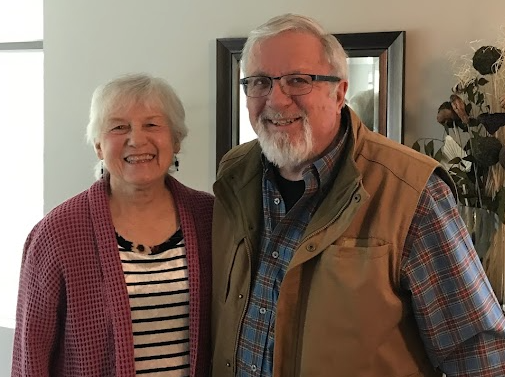
Barbara and George Mischio, 2019.
You work harder when you work for a cause
My dad was committed to a real societal issue: How to educate children with disabilities. And he spent his entire career dedicated to the cause.
No matter what kind of frustrating bureaucracy he encountered when trying to develop his program, or resistance to accommodating kids with special needs he met from society at large, he always kept his eyes on the prize. It fueled his career.
I’m a different person, with a different skill set, but I also find I do my best work when there is an underlying cause that I’m helping to champion. For example, I’m excited when we help clients in the manufacturing industry, knowing the jobs it creates and the positive impact it can have on a community.
Your experiences should shape your approach
Life is an ongoing school of hard-knocks, but there’s no reason why its lessons should be specific only to you.
My dad learned invaluable lessons during his time at Camp Merry Heart, and he passed them on to the next generation of George Mischios in the field of Special Education. His Learning Disabilities Center helped shorten their learning curve and move the field forward.
Early in my own career, I worked closely with salespeople, and I learned a lot about the value of what they do. It made me a better marketer. I’ve tried to infuse those lessons into our approach at Winbound.
You create a life of value when you see the value in people
I guess this lesson might be the most important one of all.
My dad worked with a population that is often neglected and marginalized. But he saw something in those kids. It wasn’t just about sympathy — he believed they had something to offer the world. And they do.
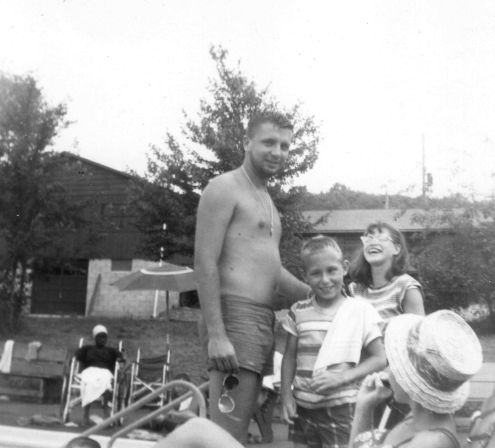
That ability to see the value in people is what allowed him to create a life of value. He learned how kids with disabilities think, act and learn — and he’s been able to help parents and other teachers understand that as well.
The life lesson was clear: When you see the value each of us bring to the world, it enriches your life and how you live it as a result.
I feel this when I see our marketing efforts working in lock-step with our clients’ sales departments. Marketing and sales have traditionally been silos in organizations. But when we see the value each of us brings to the overall effort, the results can be fantastic.
George Mischio’s impact is still being felt
A few months ago, I received a message from one of my dad’s former students. She had stumbled upon one of my posts on LinkedIn, and recognized my last name.
She told me about her experience with my dad, and capped it with, “Your dad was more influential to me than he will ever realize.”
She’s not alone. From his early days as a counselor at Camp Merry Heart, to a professor emeritus at UW-Whitewater, my father built a legacy by committing himself to a cause, and then applying his own life experiences to further it.
He created a life of value by seeing the value in others. And you’re welcome to join me as I do my best to follow in his footsteps.
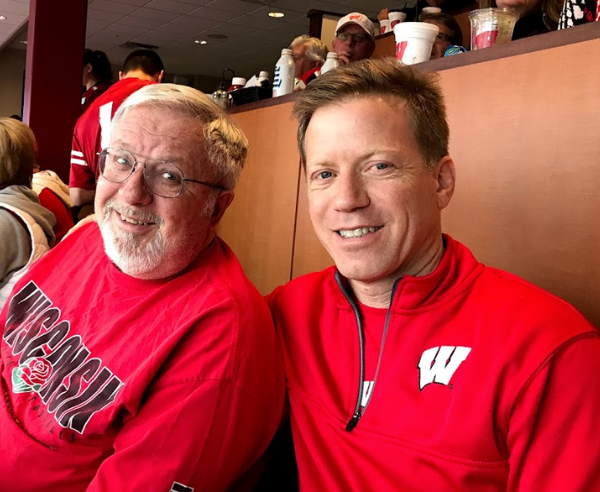
My dad and me at a Badger game in 2017. One of my favorite pics.
